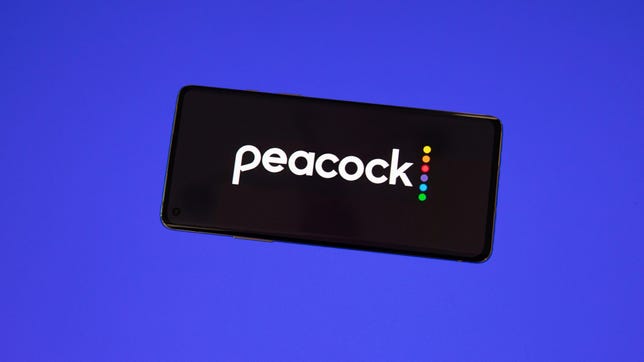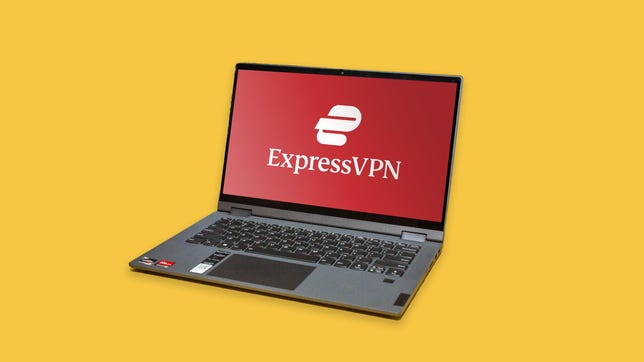
Cocaine Bear, the horror comedy about a drugged-up bear that goes on a killing spree in a Georgia forest, only hit theaters in late February. But the mammal’s murdery exploits are already coming to Peacock.
The film is directed by Elizabeth Banks and stars a large cast that includes Keri Russell, Jesse Tyler Ferguson, O’Shea Jackson Jr., Margo Martindale and Ray Liotta. It’s “inspired by true events.” (A black bear, a drug smuggler and cocaine are involved, but the bear isn’t known to have laid a hand on any humans.)
Cocaine Bear is the latest film from Universal’s film studios to stream on Peacock shortly after debuting in theaters. Read on for the release date, and why you might want to use a virtual private network while you stream.
When to watch Cocaine Bear on Peacock
Ready to face the bear? The film starts streaming on Peacock on Friday at 6 a.m. ET. People in the Pacific time zone can start watching at 3 a.m., while those in the Central time zone can do so beginning at 5 a.m.

Someone picked a bad time to go hiking.
Universal
Don’t already have access to the streaming service? Peacock offers an ad-supported Premium plan and ad-free Premium Plus plan. There’s also a free tier available to existing Peacock customers.
If you don’t want to subscribe, you can watch Cocaine Bear in theaters or rent it for $20.
Read More: Best Streaming Services of 2023
Peacock’s ad-supported Premium plan costs $5 per month or $50 annually. Its ad-free Premium Plus plan costs $10 per month or $100 annually. If you’re a Spectrum or Xfinity customer, you may have free access to the platform right now (the deal expires for Xfinity customers in June). Read our Peacock review.
How to watch Cocaine Bear from anywhere with a VPN
Perhaps you’re traveling abroad and want to stream Peacock while away from home. With a VPN, you’re able to virtually change your location on your phone, tablet or laptop to get access to the movie from anywhere in the world. There are other good reasons to use a VPN for streaming, too.
A VPN is the best way to stop your ISP from throttling your speeds by encrypting your traffic. Using a VPN is also a great idea if you’re traveling and find yourself connected to a Wi-Fi network, and you want to add an extra layer of privacy for your devices and logins. Streaming TV can be a bit smoother with a reliable, quality VPN that’s passed our tests and security standards.
You can use a VPN to stream content legally as long as VPNs are allowed in your country and you have a valid subscription to the streaming service you’re using. The US and Canada are among the countries where VPNs are legal, but we advise against streaming or downloading content on illegal torrent sites. We recommend ExpressVPN, but you may opt for another provider from our best list such as Surfshark or NordVPN.
If you’re looking for a secure and dependable VPN, our Editors’ Choice is ExpressVPN. It’s fast, works on multiple devices, and provides stable streams. It’s normally $13 per month, but you can sign up for ExpressVPN and save 35% — the equivalent of $8.32 per month — if you get an annual subscription.
ExpressVPN offers a 30-day money-back guarantee. Read our review of ExpressVPN.
Follow the VPN provider’s instructions for installation, and choose the United States, where Cocaine Bear will be streaming on Peacock. Before you open the streaming app, make sure you are connected to your VPN using your selected region. If you want to stream Cocaine Bear on more than one device, it’s possible you’ll need to configure each one to ensure you are signed in. Go to settings and check your network connections to verify you’re logged in and connected to your VPN account. Now you’re ready to open Peacock to stream.
If you run into issues with streaming, first make sure your VPN is up and running on its encrypted IP address. Double-check that you’ve followed installation instructions correctly and you’ve picked the right geographical area for viewing. If you still encounter connection problems, you may need to reboot your device. Close all apps and windows, restart your device and connect to your VPN first. Note that some streaming services have restrictions on VPN access.


